My paternal grandfather died when I was still a babe in arms, so I never knew him, and never heard any of his stories. But I was thinking of Anzac Day and the horrors of war when I visited my 94 year old aunt last week, and asked her about him. She produced a folder full of copies of letters he wrote home during World War I and I want to share some excerpts today.
Sidney left school at 14 years of age, and enlisted for World War I just before his 17th birthday. My aunt told me he was at the Battle of Passchendaele in 1917, and would almost certainly have been killed, except he was shot in the finger early in the day. If not for that chance shot, @andysantics48 and I, and all of our family, would not be with you today. It is mind boggling and heart breaking to think of the many boys killed and the potential families that were never born.
For more of the Anzac stories being posted today, visit the #anzac tag.
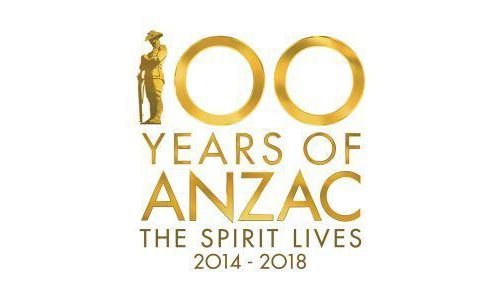
Last year at this time, I reviewed a show I went to, which remembered some of the Anzac soldiers at Gallipoli, through the music of the era and the words of some of their letters home.
As another remembrance, I choreographed a series of music from the war eras for my arthritis class. Over the past week, I’ve used this selection with both of my classes again, and will share some of those with you too. Listen to them while you read the words of my grandfather, or listen then read, as you choose.
Let’s start with some New Zealand flavour. Here’s a bilingual version of “Now Is the Hour”, also known as the Maori Farewell song.
The first letters were from the training camp in Trentham, and then at sea. From his first letter from France, 7th May 1916:
My dear Mother and Father, I have not had another letter since the two I received a week ago, but it is Sunday and we have a holiday, also we won’t have much time or convenience for writing soon. I have been appointed a Battalion Bomb Thrower and we go into some practice trenches every day and practice throwing. Yesterday we were using live bombs and had an interesting afternoon. From where we are, we can hear the big guns booming all day and night. We have leave every night, but it’s a farce as we are paid very irregularly here and one wanders round stony broke for an hour or so, and comes home and turns in. At present I have 5 pounds owing me, which is 50 days pay.
1st June, 1916 (his 18th birthday), somewhere in France
My dear Mother & Father, I received your letter of Apr 11th today (my birthday). It is a coincidence as you mentioned my birthday in your letter. We have just had a heavy bombardment and one of our dugouts was blown to smithereens. It was empty at the time, but had my three mates in the bombers been inside, they would have been killed. In half an hour, the Germans put 4500 shells into our lines, and the supports and into the town, an average of 3 a second. Excuse my writing but I’m a little shaky from concussion. We move out, after having been in the trenches for 10 days, at midnight, for a short spell. Claude had to carry out three dead N.C.O.’s (he is a stretcher bearer) and he looked worn out the next morning.
What do you think? I’m lousy! So are nearly all the battalion, I’ve been without a decent wash for 10 days, but we get a change of clothes and a hot disinfected bath when we go out, so will probably get rid of them till we go in again. We are a very disreputable lot nowadays. Nothing like the “tin soldiers” we were when on leave in NZ. Our boots are covered with mud and my trousers have only half a seat to them. I’ve not shaved for 10 days and my hair is longer than Russell’s I guess. But I’ve over 2 pounds in French money in my money belt and when we get out, I’ll have a few good feeds of chips and eggs and recuperate again.
One of our platoons has lost quarter of its men (12). Our platoon has only lost one man so far as they are in the support trench. But us bombers were in the front line all the time in case of attack. Every evening at dusk we roll out and give ’em a few rifle grenades, for which they return about 10 times as many.
Well, my dear parents, as my candle is almost out, I’ll say au revoir. With love to all, from your loving son, Sidney
In billets, France. Jan 14th, 1917
My dear parents, I am just writing a short letter today, as I have a day off because I was on billet guard last night, and we have had the heaviest fall of snow we have had since being in France. (Just my luck to be on guard half the night in the snow.) I am standing the cold very well so far, but a lot of the boys are breaking up now. In our platoon (40 men) there were 11 on sick parade this morning. Some of them with swollen feet and others with influenza and rheumatics. Of course, that means there is more work for we fellows who are still carrying on.
We are about five miles behind the firing line at present on sixteen days “rest”, which means route marches and drills and very little spare time. “Hard labour” would be a more appropriate word than “rest”, I think.
Did you know Sergeant Dunlop (of the choir) has been awarded with the DCM for his work in the Somme? He was the only NCO left in the Hawkes Bay company, Wellington Battalion, when they came out.
Robert Mandell with “It’s a Long Way to Tipperary” and “Pack up Your Troubles”
Somewhere in France, June 11th, 1917
My dear parents, here I am unscathed from the capture of Messines. We went over at 3.10am on the 7th June and came out yesterday. We had a marvellous barrage, the heaviest that has been since the war began. The attack started by our crowd blowing up a mine on our right and two on our left, which rocked us much more than an earthquake. Our boys got out of the trenches (right in the valley below Messines which is on a hill and supposed to be impregnable) and got about 20 yards behind the Hun front line where our shells were bursting and as soon as the barrage lifted back to his support line, we were in his front line, bombing his dugout and clearing the trench. As soon as that was done, we moved up again just behind the barrage on his supports, and as soon as she lifted, we were down on the Huns before he had time to get his machine guns into action. And so onto his third line, which was in the middle of the ruined Messines village. The Huns were dumbfounded at the speed that our boys showed at getting into his trenches and so stopping him from coming out of his big concrete dugouts and resisting with his deadly machine guns and bombs.
We got to our objective with only about 5 casualties in our company (200 men) but as soon as we got there, they shelled us and didn’t knock off for the 48 hours that we held the trench and we lost 50% of the company. Sergeant Major Angell of our company, who comes from Johnsonville, was blown to pieces. All our officers were casualties and we only had two Sergeants left when we came out. When the authorities at HQ heard Messines had been taken in half an hour, they wouldn’t believe it. It is one of his strongest points in the line. The whole secret of success lay in the surprise. We went over in the dark and before dawn broke, we were in his third line. Four of us who are mates came through alright, though one was slightly wounded in the arm. I got your letter with the four leaf clover in it the day before the attack and that’s what carried me through. We will probably be hopping the parapet again as soon as we are reinforced, so “best of luck to your Sidney James.”
I had one funny experience up in Messines. I had been sent down with several others to get water from the pump and got split up from the boys when we were running down from the shells which were dropping thick in one spot. Anyhow, I went down on my own to the pump and brought back two petrol tins of water and everyone looked at me with amazement. It appears that some of the rest of the water party on coming back had sworn they saw me dead in a shell hole and as they had missed me were doubly sure. The fellow that was dead in the shell hole must have been a very close resemblance. Anyhow, the boys were very glad I was alright (and so was I of course).
Well, my dear mother and father, brother and sisters, this letter will have to do for all as we have not much spare time nowadays. Love to everyone from Sid.
England, 29th Aug, 1917
My darling mother, here I am at Witney and a delightful little place it is too. The heading you will see on this letter is “Blighty”. It is the common name for England in France. It is taken from an Indian word “blightee” meaning “home”. What a glorious place old England is. God! It’s worth fighting for and no mistake. I had four days in London before coming down here. Why I stayed there was because I have two boils on my right leg and one on the left. I went to the doctor at the club and he told me to get them dressed twice a day, so I waited till they were almost healed. They are just about right now and I have some bandages and ointment with me, and can fix them up myself here. I don’t know how I got them but I’ve had them about three weeks now.
Laura Wright singing “Keep The Home Fires Burning”
A couple of months later, 22nd October 1917, in Codford, Wiltshire, England.
My darling mother, it is 10 days since I was hit and I would have written before, only it is no good writing till one knows the nature of one’s wound. The doctor at Brockenhurst, where I was for four days, said the third finger would have to come off, but the sister told me it would set alright in time. I have just arrived so don’t know the verdict of the doctor here.
I spent three days at Rouen and the doctor marked me for England, then I had 12 hours on the hospital ship Panama from Le Havre to Southampton. I had 4 days at our number 1 hospital in Brockenhurst, then was moved here today. We have been sent here to make room for another 2000 wounded NZers who are still in France. Brockenhurst is nice and handy to Southampton, so we are moved to this hospital, No 3 General, which is further inland, to make room for them.
The machine gun bullet which got me went in the hollow of the hand, just below the third finger, and shot up the finger going right through a ring without breaking it, and came out at the first joint of the finger half way up, fracturing the finger. I have the finger in splints now, but I think it will always be useless.
I have been under the X-rays in France and Brockenhurst. It is a wonderful affair, and shows the bones as clearly as if there was no flesh on them. I could see the fractured finger as plain as daylight. I will be here in England for another 2 months at least, but will probably be back in France before the spring, if the war is not over by then.
The NZers have had a terrible smacking up this time. We were simply mowed down with machine guns. Fritz was on a ridge and we had to take it, but we never got there. I was hit 4 hours after the hop over, about 10am on the 12th October and was the last of my section to go. I went over in charge of a Lewis Gun section and we were all knocked in the first 4 hours. Our old Colonel, who has been right through with us, was killed. He was hit on the leg with a machine gun bullet and died of shock in a few hours. I was lucky as I able to walk out.
Still convalescing in England, 16th December, 1917
Do you remember me telling you about my pal Len Gudgeon, who used to be in the Union Bank in Wellington? He was a clever chap and knew French, German and Latin well. He was killed, poor chap, on the 1st of this month. I did get a shock when I saw his name in the casualty list here. You don’t how hard it is to lose a good mate. We have been chums since leaving New Zealand and now he is gone. It will be two long years since I left by the time this reaches you, but I don’t regret having come in the least.
It looks like Sidney never went back to France, as the next letter is again from Codford, England, 19th May, 1918
It is Sunday and I have just finished tea at the mess room, where I look after 24 men (2 tables). It is a good job, but one has to work on Saturday and Sunday which is a drawback. I went to church this morning and enjoyed it very much. The singing is very good when there are about 1200 lusty pairs of lungs going. I have not had any leave here since I came back from the job in London, but am going to apply soon for a week. I’m going to spend a few days with the cousins, then the rest in the “Big Smoke” as London is called.
Codford, England, 13th Nov, 1918
At last the war is over. To think that everything is peace and quietness on the various fronts seems incredible to me and I don’t think half the fellows have realised it yet. Today is Wednesday and at 2pm on Monday, we got word that the armistice was signed. Parades immediately ceased here and we were paid. The Colonel gave a speech and told us there would be no charge for the canteen beers for the evening. Everyone went down to see the fun. All the officers and NCOs were drinking with the men, drums were beating, and boys singing and cheering. God, it was a night! The night was finished by another march through the camp, to the accompaniment of drums, trumpet and singing. I don’t suppose I will get home for quite time yet as the C class men go first, and then all the married men.
After the war
Sidney returned to civilian life, and worked when he could, starting with some clerical jobs. But work was scarce and employers were not very sympathetic.
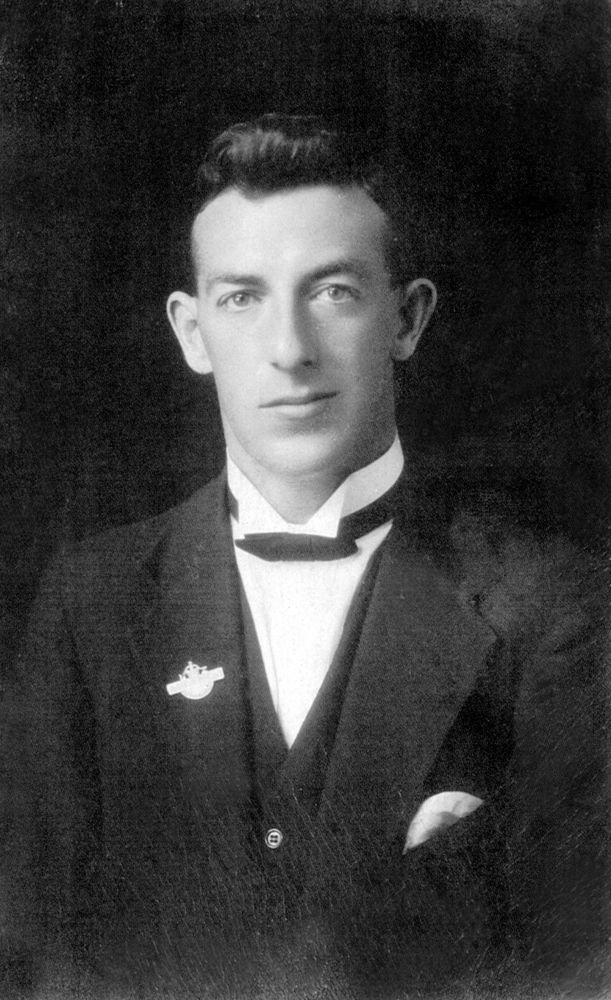
He married in 1923, and had 7 children between 1924 and 1942. Our dad was his second to youngest, born in 1933.
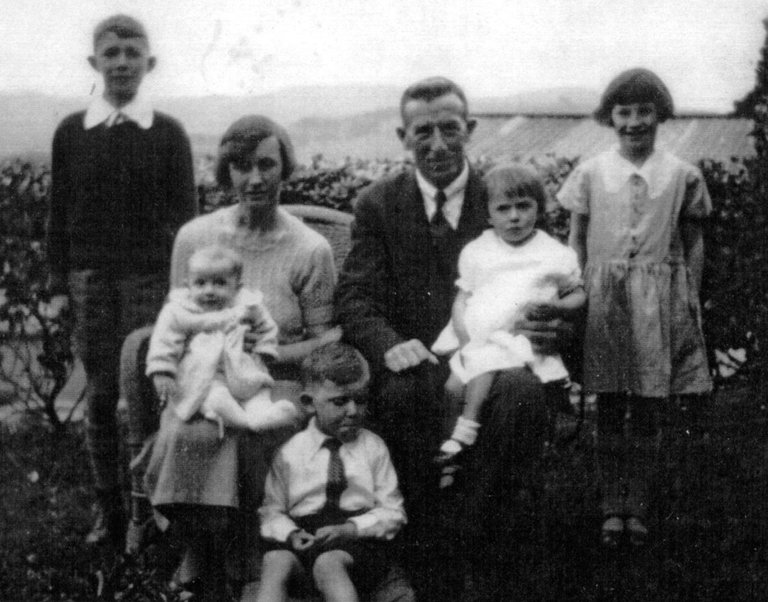
Sidney became a member of the Territorials towards the end of the 1930s, and then served in World War 2.
Vera Lynn with “Lili Marlene”
He started as a gunner, then was a sapper in the Engineers at Waiouru (New Zealand’s military camp, in the Central North Island). Wikipedia says:
A sapper, also called pioneer or combat engineer, is a combatant or soldier who performs a variety of military engineering duties such as breaching fortifications, demolitions, bridge-building, laying or clearing minefields, preparing field defenses as well as building, and working on road and airfield construction and repair. They are also trained to serve as infantry personnel in defensive and offensive operations. A sapper's duties are devoted to tasks involving facilitating movement, defence and survival of allied forces and impeding those of enemies. The term "sapper" is used in the British Army and Commonwealth nations, Polish Army and the U.S. military. The phrase "sapper" comes from the French saper (to undermine, to dig under a wall or building to cause its collapse).
He finished the war at the Central Military District Records Office and rose to the rank of Warrant Officer First Class.
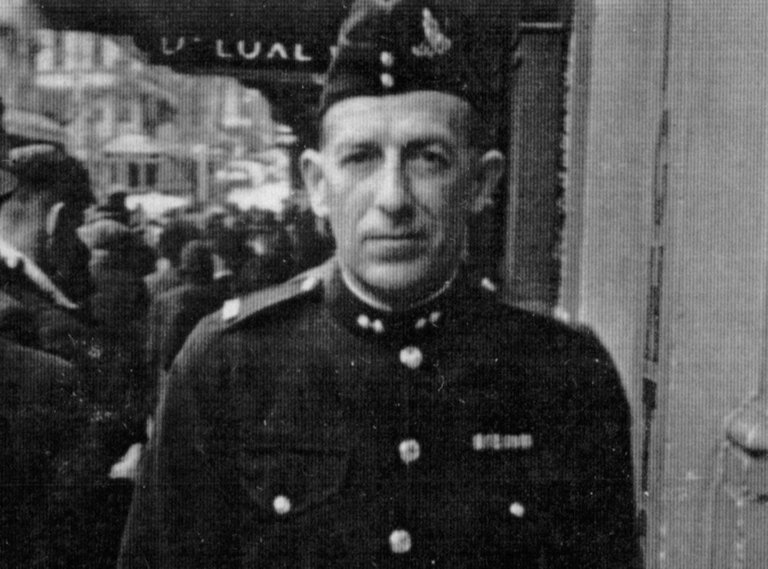
My aunt remembers him as always having poor health, and sometimes a short temper, and puts that down to after effects of his war experiences. He had his first stroke in 1952 at the age of 54, and for the last 6 years of his life he was bed ridden with atherosclerosis. He died in Wellington Hospital, on the 20th December 1958 at the age of 60.
Medals gained
World War 1 – British War Medal 1914-1920 / Victory Medal 1919
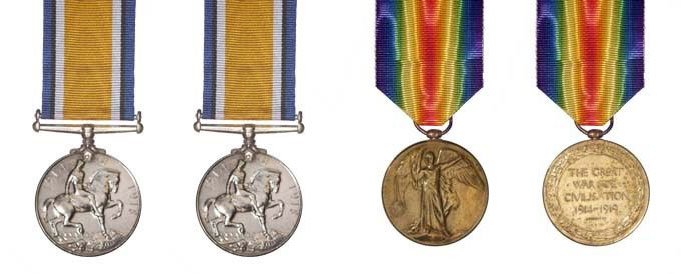
World War 2 – War Medal 1939-1945 / New Zealand War Service Medal 1939-1945
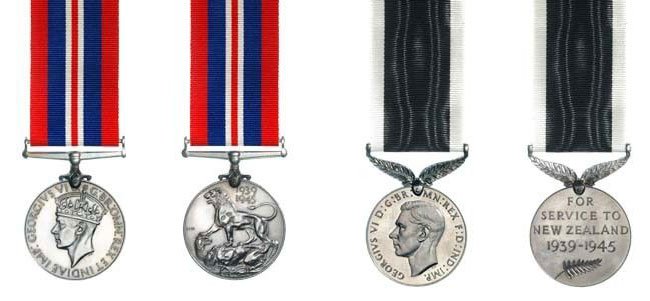
Territorial Service – New Zealand Territorial Service 12 years / For efficient service in New Zealand and bar
Pictures of medals taken from a post by @len.george
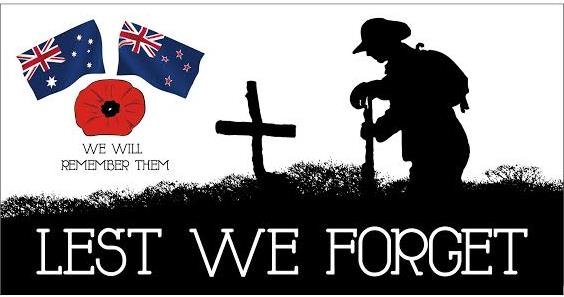
This is my contribution to “THE ANZAC PROJECT” initiated by @ravenruis
Thanks for reading and listening
Family photos. Videos from Youtube.
Follow me for more health, nutrition, food, lifestyle and recipe posts. For an archive of 2016 & 2017 posts, by category, see my last post of 2017.

Contact me in SteemitChat to ask about one on one nutritional coaching or EFT (Emotional Freedom Technique) sessions by Skype. (Then put a comment on my most recent post, so I know to find you.) Steem, other altcoins or Paypal accepted.
South Pacific channel on Discord. There is an old list of kiwis on this post.If you’re from New Zealand (Aotearoa) and are looking for other kiwis, use #teamnz as one of your tags // check out other posts with #kiwi or #teamnz tags // follow @teamnz // or join the
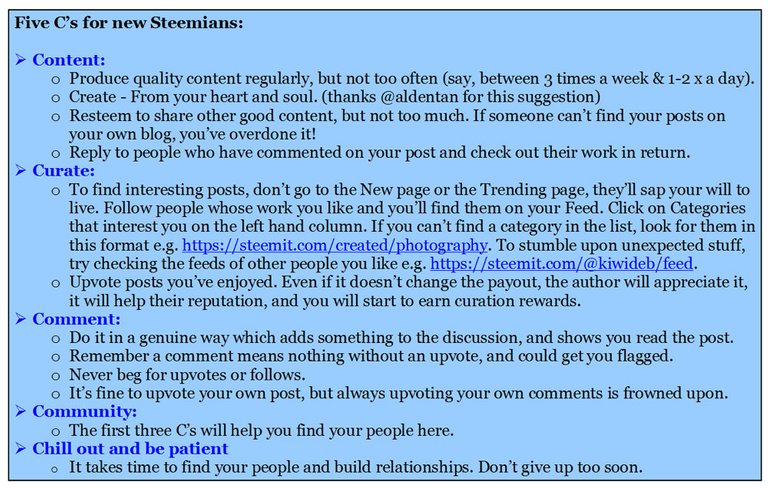
How can anyone fail to be deeply moved after reading the letters your grandfather wrote during the war @kiwideb? I put myself in his mothers position and wonder how I would cope. I'd long for his letters but be very anxious to hear what he was going through even though I am sure he glossed over the harsh realities. Sidney penned many a poignant line but his bravery and strength of character was very evident throughout. The sentences that got to me the most were these. (Quote) "We are a very disreputable lot nowadays. Nothing like the “tin soldiers” we were when on leave in NZ." I think "disreputable" would be the exact opposite to how I (and everyone else) would describe our courageous and strong soldiers.
Your remarkable blog is an extremely fitting way to honour your Grandfather and all soldiers Deb and I'm sure he would have been very proud to read your tribute.
I got goose bumps when I listened to "Now is the Hour." Nothing makes me more homesick for New Zealand than listening to the harmonious singing of our Maori brothers and sisters. This version was particularly touching. Thanks so much for taking the time to write and share this magnificent Anzac Day article. It is even more special because of the personal connections. U @ R)
'LEST WE FORGET.'
There's nothing like hearing the words and feelings of a single person to touch us. But then multiply that by the thousands and it would become more than we could bear, if we let ourselves feel it. The thousands that gladly went to do their duty because they felt it was right, the thousands that were there for their mates, the thousands that hid their fear and despair when they wrote home. It was a truly valiant generation. I think of my youngest nephew who is 18, and it's inconceivable that boys his age and younger had to go through that.
I know what you mean about the music too. Although there isn't a drop of Maori blood in my veins, I'm a kiwi to the core and it's such a part of our heritage that it fills my heart.
I do have a little Maori blood but I think anyone who loves music will recognize the unique sound of Maori singers and their music. We are very blessed to have been brought up in such a wonderful country as N.Z. I’m looking forward to returning for another dose of Aotearoa next year hopefully.So true @kiwideb. Imagine thousands of voices calling as one! The numbers of Kiwi and Aussie soldiers that were killed during the wars has been staggering. It makes me feel so very grateful for every bit of freedom we enjoy and sometimes, even take for granted until the reality checks during Anzac Day and similar commemorations bring Home to us. I’m so glad to see the younger generations joining forces, prepared to put away their devices, get up early and show their appreciation of the cost and great sacrifice made for them.
I am so sorry to hear about the passing of your Aunt.
These letters are absolutely incredible. The details and descriptivness is just unbelievable. Such a precious treasure for you and your family to have.
All is well. My aunt is still with us at the age of 94 - the last remaining of Sidney James's children - and still sharp as a tack and living in her own home. It was wonderful to borrow the letters from her and see that slice of my history.
oh man, i completely misread that opener. I am so sorry. Gosh, foot in mouth disease over here.
Glad she is doing well and still sharp as a tack! Keep up the great posts.
No worries - we've all "got hold of the wrong end of the stick" from time to time :-)
Yes, we will remember.
Gosh, what an absolute treasure to have those letters!
A wonderful commemorative post, on your grandfather's behalf. :)
Dad's oldest brother was a librarian, and he took copies of all the letters before donating them to the National Library. I don't think Dad's set turned up after he died, so it was the first I knew of the letters. But I'm very happy to have it on the blockchain now.
What a great read @kiwideb! You are lucky to have so much information. My grandpa served in both wars too (I think) but he died when I was a child and I'm not aware of any letters, or anyone I can ask since my family is all single children etc. up until my generation. It's nice that you've cemented this on the blockchain too!
Also, is it wrong that the thing that stands out the most from reading these letters is "free beers!" :)
Spoken like a true Aussie!
Because he died so young, and I have no memory of him, up till now, he wasn't really part of my internal family history, except as a name. So it was great to be able to get that picture of him from the letters, and the covering document my uncle had put with them. Did you have a look at what war records could be found for your grandpa?
I had a very brief look, but I didn't try too hard. I really wanted to do another 'women in history' post. Plus he wasn't living in Australia then so he'd have been in the British Army.
All the other family connections I thought of would have been in the British Army too, so weren't Anzacs.
The Creative Crypto is all about art on the blockchain and learning from creatives like you. Looking forward to crossing paths again soon. Steem on!Hello @kiwideb, thank you for sharing this creative work! We just stopped by to say that you've been upvoted by the @creativecrypto magazine.
Thank you very much, I'll come and check out the mag!
Wow, just wow. What an amazing story. Thank you so much for sharing!
To me the amazing bit is that thousands of young men had the same or similar stories, to an extent that we just can't comprehend. But tell one story, and the horror of it all becomes real.
Most definitely. It is part of our heritage now. So many were lost, so it's up to the survivors to carry the flame and make sure their story is not lost.
This is excellent, i love reading old letters like that.
They do take you right back to another time, which is so different from our own, in many ways. It's so important to remember that life wasn't always as it is now.
Congrats @kiwideb you are the recipient of the Silver STEEM Round for this great post.
https://steemit.com/anzac/@buggedout/unsung-heroes-of-anzac-day-silver-steem-round-recipient
Please let me know how best to contact you off-chain. On Discord I am buggedout#9522
Thank you so much. I'll pop over to Discord.
What a beautiful post commemorating your grandfather. It was great to see the letters, follow his military career and follow on from the war. Loved the photo and the resemblance to your dad. This was a great entry!
Thanks Linny and nice to meet you.
This is a beautiful post. And the letters... They were so real and vivid.
I like the feelings of comradeship, valour and inventiveness.
On the flip side, although war is beautiful as an art, this piece underscores its gruesome nature. To see a man today and tomorrow, he's no more...
Great post
And that's exactly why we have the Anzac Day remembrance - so that we don't forget how terrible war is, and what it did to entire generation of young men.
What an amazing read, would love to find more about my grandad, something to hold onto :)
I can't believe it took me so long to think to ask!
I am glad you did, it must be so interesting to read :)
Deb, what a wonderful tribute to your grandfather. A great piece of history to have his letters. My father was in the WW11 and my mother a war bride. Their sacrifice was tremendous for the freedom we enjoy today. We will not forget them!
Nov 11 is Remembrance Day in Canada with laying of wreaths, ceremonies and marches.
I love those old war songs and know some of the words, especially, It’s a long way to Tipperary and Pack Up Your Troubles. ❤️
It's a fine line between remembering and honouring the sacrifices made by the past generations, and glorifying war, which some people think Anzac Day does. Remembrance Day is a good way to put it, and makes the purpose clearer.
One of my arthritis class ladies said, after the class "I was enjoying hearing all those songs again so much, I don't know how well I did the exercises!"
Wow @kiwideb. That's some really amazing ANZAC stuff. Thanks so much for sharing. Went to the Dawn Ceremony for the first time last year.
This is a curation bot for TeamNZ. Please join our AUS/NZ community on Discord.
For any inquiries/issues about the bot please contact @cryptonik.